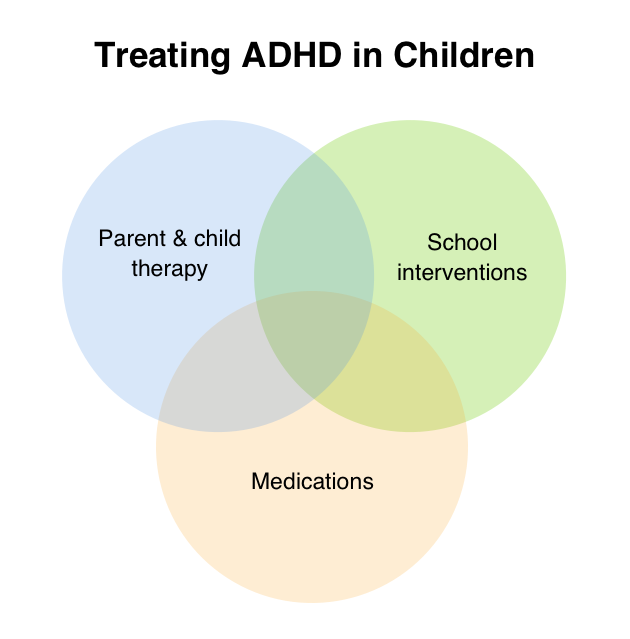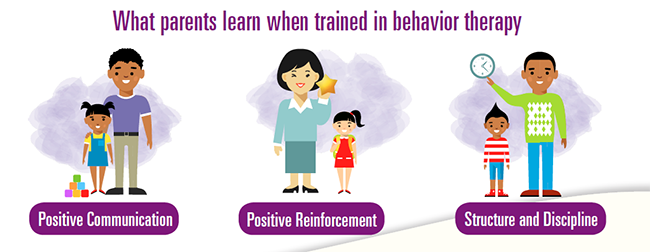Checking Out Efficient ADHD Treatment Choices for All Ages
The intricacies of Attention Deficiency Attention Deficit Disorder Problem (ADHD) existing special challenges throughout various age groups, demanding an extensive expedition of effective treatment alternatives. A combination of behavior treatments, pharmacological treatments, and lifestyle adjustments has actually shown pledge in dealing with the varied demands of individuals with ADHD.
Understanding ADHD and Its Effect
Attention-Deficit/Hyperactivity Condition (ADHD) is a neurodevelopmental problem characterized by consistent patterns of negligence, attention deficit disorder, and impulsivity that can substantially influence various elements of a person's life. It commonly manifests in youth, although signs and symptoms can linger into their adult years. The core signs of ADHD can interfere with instructional efficiency, prevent social interactions, and complicate occupational undertakings.
Individuals with ADHD commonly deal with preserving focus on jobs, organizing activities, and adhering to via on instructions, which can bring about scholastic underachievement (Depression Treatment). In social contexts, impulsivity might cause difficulties in forming and sustaining relationships, as individuals may interrupt discussions or make rash choices without considering repercussions
Furthermore, ADHD can co-occur with other psychological health and wellness conditions, such as anxiety and clinical depression, additionally complicating medical diagnosis and treatment. The irregularity in symptom discussion indicates that ADHD can affect people in a different way, necessitating a personalized approach to monitoring. Recognizing ADHD's diverse impact is critical for establishing reliable methods that support individuals in browsing everyday challenges and attaining their potential. Comprehensive recognition of ADHD's nature and implications prepares for exploring appropriate therapy choices customized to each individual's requirements.
Behavioral Therapies for ADHD
Various behavior modifications have been established to effectively deal with the challenges connected with ADHD, concentrating on changing particular habits and promoting essential skills. Among the most identified methods are cognitive-behavioral therapy (CBT), parent training, and social skills training.
CBT assists individuals determine and alter adverse idea patterns and habits, advertising a much more positive outlook and improved self-regulation. This therapy frequently includes practical strategies for managing impulsivity and improving company. Parent training programs equip caregivers by equipping them with techniques to enhance favorable actions and established consistent borders, which can be specifically helpful for kids with ADHD.
Social skills training is another essential element, teaching people with ADHD just how to communicate efficiently with peers - Depression Treatment. This approach often entails role-playing and comments to enhance interaction, collaboration, and conflict resolution abilities
Incorporating these behavior modifications right into a detailed treatment plan can dramatically enhance functioning and top quality of life for individuals with ADHD. Inevitably, the efficiency of these treatments depends upon customized techniques that consider the one-of-a-kind requirements of everyone, consequently cultivating durability and flexibility in life.
Medicine Options Available
For many people with ADHD, medication can play a considerable duty in managing signs and improving overall performance. Both primary classifications of drugs prescribed for ADHD domestic violence counseling are energizers and non-stimulants.
Stimulants, such as methylphenidate and amphetamine-based drugs, are the most frequently made use of treatments. These drugs function by enhancing the degrees of neurotransmitters, specifically dopamine and norepinephrine, in the mind, which helps improve interest and lower impulsivity and hyperactivity. They commonly generate quick results, making them a preferred option for lots of people.

It is crucial for doctor to perform mdd with psychotic features an extensive evaluation to establish one of the most appropriate medication based on private requirements, clinical background, and possible negative effects. Routine follow-up and monitoring are also critical to ensure the effectiveness of the chosen treatment and to make any necessary adjustments.
Lifestyle Changes to Consider
Taking care of ADHD properly expands beyond medication, as way of life adjustments can dramatically boost general wellness and symptom control. Incorporating structured routines is important; constant schedules aid people with ADHD manage their time efficiently and minimize sensations of overwhelm.
Regular physical task is one more essential component. Exercise not just aids to enhance concentration yet likewise boosts mood and reduces stress degrees. Activities such as yoga exercise or team sporting activities can be specifically valuable, promoting both fitness and social communication.
Nutrition additionally plays a crucial function. Depression Treatment. A well balanced diet plan rich in omega-3 fatty acids, whole grains, company website and lean proteins can add to enhanced emphasis and cognitive function. Restricting sugar and processed foods is advisable, as these can worsen hyperactivity and impulsivity
Sleep health is important for handling ADHD signs and symptoms. Establishing a regular sleep timetable and producing a peaceful setting can enhance sleep high quality, causing far better attention and emotional law.
Different and Holistic Approaches
Alternate and alternative methods to ADHD therapy offer a varied array of alternatives that enhance standard techniques. These approaches often concentrate on way of living adjustments, dietary interventions, and therapeutic practices that aim to enhance overall wellness while attending to ADHD signs.

Mindfulness and behavioral therapies are also gaining traction as holistic treatments. Practices such as yoga exercise, meditation, and cognitive-behavioral therapy can cultivate self-regulation and boost focus. These approaches sustain psychological durability, which is specifically helpful for people with ADHD.
Natural supplements, such as ginkgo biloba and ginseng, are often checked out; nevertheless, it is essential to speak with medical care specialists prior to integrating these into therapy plans. While option and holistic methods can offer important support, they need to ideally be used along with evidence-based therapies to accomplish ideal results for taking care of ADHD across every ages.
Verdict
In recap, reliable ADHD therapy necessitates a detailed approach that includes behavioral therapies, medicine, way of life adjustments, and all natural approaches. This diverse approach emphasizes the importance of personalized care in addressing the diverse needs of people with ADHD throughout all age teams.